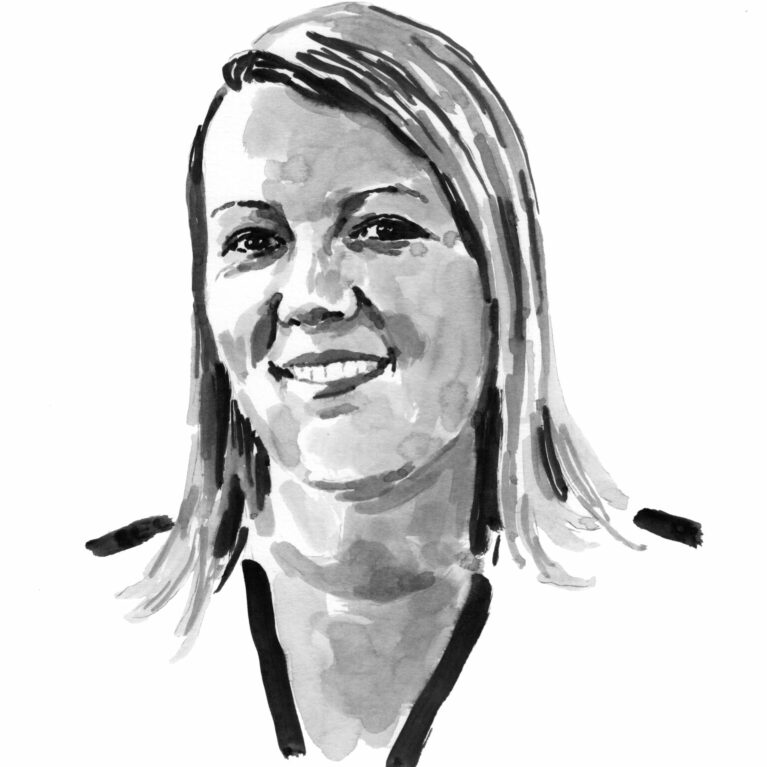Sarah Waries

Who I am
Growing up in landlocked Nepal I was always passionate about wildlife and conservation, but my interest in the marine environment did not develop until I first came to Cape Town in 2004. After spending time as a research assistant in Zambia and completing a degree in zoology at Southampton University, I came to Cape Town to study the Chacma baboon for my Honours thesis. I fell in love with the area and managed a range of environmental programmes here before starting at Shark Spotters in 2008. Now as the CEO, I am responsible for the management, growth and strategic development of the organisation, a job that fuels my passion for combining conservation, science, job creation and community upliftment for the benefit of our natural and social environment.
Shark Spotters started as a community initiative and this strong grass-roots feel has remained a focus of the programme since its inception. Key to this is the emphasis on creating employment opportunities and skills development for people from local previously disadvantaged communities, and the programme now employs 42 people from the area. From Monwabisi Sikweyiya, the very first spotter who is now the field manager, to the exclusion net crew, the research and education team and the spotters themselves, the people who work at Shark Spotters are what really make the programme special and so successful. The members of our team go through extensive training on shark behaviour, marine biology, first aid and advanced trauma management, among other subjects, and are truly passionate about saving lives and conserving the ocean. Their knowledge of sharks on our coastline is second to none and their dedication makes them a fantastic team to work with.
Where I work
Started in 2004 in response to a spate of shark bite incidents and increased shark sightings, Shark Spotters is now the primary shark safety strategy used in Cape Town, South Africa.
The programme is a proactive, early warning shark safety service provided at eight strategic beaches, primarily in False Bay, where there is a high spatial overlap between people and sharks. Four of these beaches operate year-round, 365 days a year (Muizenberg, St James/Kalk Bay, Fish Hoek and Caves, Kogel Bay), while the other four operate only in spring and summer (Glencairn, Clovelly, Monwabisi and the Hoek, Noordhoek). In addition, an environmentally responsible shark exclusion barrier is deployed at Fish Hoek beach during the spring and summer months. Our research programme is focused in False Bay, the largest true bay in southern Africa.
My office is based at the Shark Spotters Information Centre on Muizenberg beach, the headquarters for our operations and an educational, interactive space where members of the public can learn about the programme.
What I do
Spotters are trained observers who use visual surveillance to detect sharks and prevent negative interactions between sharks and recreational water-users. At each spotting location, one spotter is placed at an elevated position (usually on a mountain) with polarised sunglasses and binoculars and he or she scans the ocean continuously, looking for sharks and other marine activity. This spotter is in radio contact with another spotter on the beach. When a shark is seen, the mountain spotter informs the beach spotter, who sets off a siren and raises the white flag, signalling to water users to leave the water and only return when the appropriate all-clear signal is given. Shark Spotters uses a system of four informative flags on every beach to communicate the current shark status and spotting conditions to the public.
Shark Spotters, in conjunction with the City of Cape Town, also operates a one-of-a-kind shark exclusion net in an area off Fish Hoek beach. Forming a complete barrier from the sea surface to the sea floor, the exclusion net completely encloses an area and prevents sharks and other marine animals from entering the ‘exclusion zone’. The Fish Hoek net is unique as a shark exclusion barrier in that it has been specifically designed to have minimal environmental impact and to be adaptable to changing weather conditions. Unlike traditional shark barriers, which are rigid structures permanently fixed in position, this barrier is deployed and retrieved every day – the only one of its kind in the world.
Our applied research programme focuses on the presence and behaviour of sharks in False Bay to inform public safety policy and conservation and management strategies. Its key objectives are to determine where and when sharks are active in Cape waters and whether their movements and behaviour are affected by changes in the environment or the availability of prey; to identify population trends; and to test shark safety technology and developments. Shark Spotters also collates data on shark attacks, responding to all local incidents to collect factual and objective information. This forms the basis of communication with the public to present a dispassionate case for sharks in shark–human conflict issues.
Our education programme focuses on providing factual, non-sensational information about sharks and shark safety to the public so that they can make informed decisions about risk when entering the water. We aim to foster a greater understanding of sharks and their important role in the ecosystem, which will ultimately change people’s perspective on sharks from fear to acceptance. We achieve this through daily interaction with beach-goers in person, on our social media platforms and through traditional media. We also conduct outreach events for all ages, from primary school to professionals.
This holistic approach, combining safety, research and education, is what makes the programme so successful and why it has become a world leader in sustainable shark bite mitigation.
